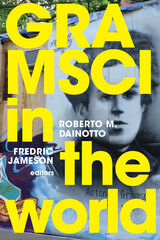
Contributors. Alberto Burgio, Cesare Casarino, Maria Elisa Cevasco, Kate Crehan, Roberto M. Dainotto, Michael Denning, Harry Harootunian, Fredric Jameson, R. A. Judy, Patrizia Manduchi, Andrea Scapolo, Peter D. Thomas, Catherine Walsh, Pu Wang, Cosimo Zene
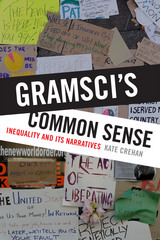
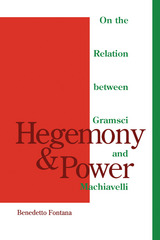
Presents a comparative and textual exploration of Gramsci's interpretation of Machiavelli's political analyses. This valuable contribution to our understanding of Gramsci includes a comparison of the major Machiavellian ideas such as the nature of political knowledge, the new principality, the concept of the people, and the relation between thought and action, to Gramsci's concepts of hegemony, moral and intellectual reform, and the collective will.

This book places Gramsci’s ideas within the linguistically influenced social theory of the twentieth century. It summarizes some of the major ideas of Ferdinand de Saussure, Ludwig Wittgenstein, language philosophy and post-structuralism in relation to Gramsci’s position. By paying great attention to the linguistic underpinnings of Gramsci's Marxism, Language and Hegemony in Gramsci shows how his theorization of power, language and politics address issues raised by post-modernism and the work of Michel Foucault, Jacques Derrida, Chantal Mouffe, and Ernesto Laclau.

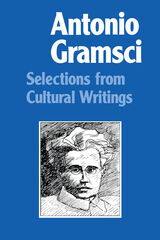
Though he died as Benito Mussolini's prisoner, leaving only newspaper articles and fragmentary notes, Antonio Gramsci is now seen as the most significant Marxist thinker since Lenin. This volume is the first English translation of his writings on culture, organically and coherently edited from his journalism and his Prison Notebooks.
Gramsci writes about the popular and the great artists from Jules Verne to Dante, but not as so many timeless monuments. He sees artworks in the context of their reception and their absorption in particular cultures and histories. He is sensitive to the politics of culture as well as to the demands of philological scholarship, as his superb work on Dante in this volume shows. We have in this book Gramsci's changing views on particular literary movements and authors, as well as his ideas on the nature of proletarian and popular cultural criticism. Throughout he is concerned with cultural analysis and strategy rather than literary criticism by itself. The headnotes and footnotes prepared by Forgacs and Nowell-Smith address themselves both to the circumstances surrounding the composition of each segment and to the central problems of contemporary Gramsci scholarship. Antonio Gramsci is the twentieth-century writer who has most brilliantly and suggestively explored the ties that bind culture and politics. The publication of this collection is an event of major significance for theorists of all sorts.
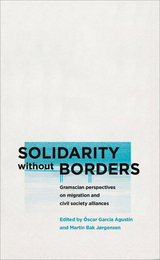
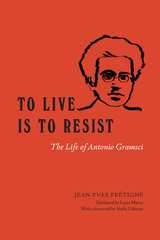
One of the most influential political thinkers of the twentieth century, Antonio Gramsci (1891–1937) has left an indelible mark on philosophy and critical theory. His innovative work on history, society, power, and the state has influenced several generations of readers and political activists, and even shaped important developments in postcolonial thought. But Gramsci’s thinking is scattered across the thousands of notebook pages he wrote while he was imprisoned by Italy’s fascist government from 1926 until shortly before his death.
To guide readers through Gramsci’s life and works, historian Jean-Yves Frétigné offers To Live Is to Resist, an accessible, compelling, and deeply researched portrait of an extraordinary figure. Throughout the book, Frétigné emphasizes Gramsci’s quiet heroism and his unwavering commitment to political practice and resistance. Most powerfully, he shows how Gramsci never surrendered, even in conditions that stripped him of all power—except, of course, the power to think.

"Powerful and clarifying . . . a landmark volume."
---John Agnew, University of California, Los Angeles
"Morton draws upon an impressive knowledge of Gramsci's writings to provide new insights into key processes in today's world order."
---Anne Showstack Sassoon, Kingston University and Birbeck College, University of London.
READERS
Browse our collection.
PUBLISHERS
See BiblioVault's publisher services.
STUDENT SERVICES
Files for college accessibility offices.
UChicago Accessibility Resources
home | accessibility | search | about | contact us
BiblioVault ® 2001 - 2024
The University of Chicago Press









